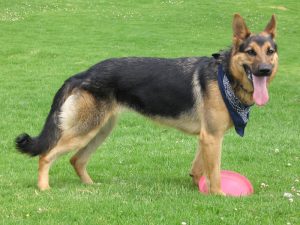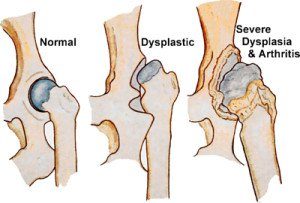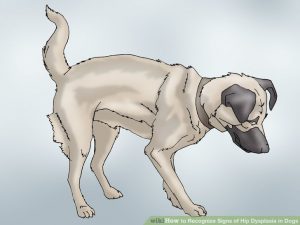By Gemma Chriss
 Many pet owners throughout the Green, Ohio and Mogadore, Ohio areas are unfamiliar with canine hip dysplasia, despite the prevalence among large and purebred dogs. However, the experts at Uniontown Veterinary Clinic in Uniontown, Ohio urge all dog lovers to learn about this impairment so they can determine whether their own four-legged friends are at risk. If they are, this local vet practice notes that a number of hip dysplasia treatments are available, including veterinary surgery. Before scheduling a pet x-ray at Uniontown Veterinary Clinic’s office, those with dogs should consider reading up on this congenital disease and what steps need to be taken once it presents itself.
Many pet owners throughout the Green, Ohio and Mogadore, Ohio areas are unfamiliar with canine hip dysplasia, despite the prevalence among large and purebred dogs. However, the experts at Uniontown Veterinary Clinic in Uniontown, Ohio urge all dog lovers to learn about this impairment so they can determine whether their own four-legged friends are at risk. If they are, this local vet practice notes that a number of hip dysplasia treatments are available, including veterinary surgery. Before scheduling a pet x-ray at Uniontown Veterinary Clinic’s office, those with dogs should consider reading up on this congenital disease and what steps need to be taken once it presents itself.
As mentioned above, canine hip dysplasia is a hereditary malformation of the hip joint, as well as the muscles, ligaments, and connective tissue that would normally support it. A combination of genetic and environmental factors leads to subluxation, or separation of the two bones within the joint. The experts at Uniontown Veterinary Clinic note that the symptoms of canine hip dysplasia are often similar to those of arthritis in the hip. Dogs may walk with a limp, climb stairs with great difficulty, or even avoid certain activities that cause pain and stiffness in their joints. Since most pet owners throughout the Green and Mogadore areas aren’t able to diagnose their animals, they often mistake the condition for another. That’s why local residents should schedule a pet x-ray at a local vet practice like Uniontown Veterinary Clinic as soon as symptoms arise.
If canine hip dysplasia is confirmed after a physical exam and pet x-ray, the professionals at this Uniontown-based establishment will offer some information about the hip dysplasia treatments that are available. It’s extremely important to begin a course of treatment right away as this condition can eventually lead to severe osteoarthritis. Since canine hip dysplasia is a congenital disease, there aren’t any products on the market to prevent its development. Oftentimes the best course of action is moving forward with veterinary surgery to correct the subluxation. The type of procedure used—triple pelvic osteotomy, juvenile pubic symphysiodesis, total hip replacement, femoral head and neck excision—will vary depending on the dog’s age, body size, and severity of condition. One of the experienced veterinarians at Uniontown Veterinary Clinic will be able to determine the right procedure after reviewing the scans and the results of all exams that were performed.
If veterinary surgery isn’t a viable option, the experts at Uniontown Veterinary Clinic will be able to describe some of the other hip dysplasia treatments that are available as well. Though the position of the joint won’t change, there are a number of things that can help decrease the progression of the disease. Giving the affected dog proper nutrition and exercise, as well as incorporating anti-inflammatory drugs and oral supplements into the daily regimen can reduce discomfort.
For additional information about canine hip dysplasia, visit the website for this local vet practice at www.uniontownvet.com. Those with specific questions about the hip dysplasia treatments that are available, including veterinary surgery, can contact Uniontown Veterinary Clinic directly by calling 330.699.9937. Their friendly and knowledgeable staff is happy to address any and all concerns regarding pet health. Pet owners throughout the Green, Ohio and Mogadore, Ohio areas should also consider scheduling a pet x-ray so hip dysplasia can either be confirmed or ruled out.
Uniontown Veterinary Clinic
3435 Grovemont St NW
Uniontown, Ohio 44685
Ph: 330.699.9937
www.uniontownvet.com



